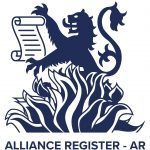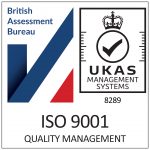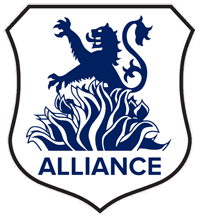The Roles Of Foot Health Practitioners
Podiatry is the profession by which recalcitrant external conditions and unfavourable internal structure, disease and pathological conditions are addressed. The podiatrist takes on those cases requiring specialist leg and foot support that cannot be delivered by the Foot Health Practitioner. The full skills of a Podiatrist would be needed and utilised in only a small proportion of the total of presenting cases. Podiatrists are trained to a higher level (degree) than the FHP (diploma).
The Podiatrist has all the skills required of an FHP, but undertakes greater academic preparation. Ethical behaviour extends to FHPs and other members of the medical team, and referral to an FHP for routine care should be an appropriate pathway.
Gait analysis is in the scope of the Podiatrist. So too, are vascular studies, acute diabetic support, paediatric developmental conditions. Due to the nature of the understanding required by these latter conditions, it will be seen that the Podiatrist may choose to specialise in these and other areas.
The Podiatrist working within the NHS would often have direct access to the facilities of Haematology and Cytology Departments and Pathology laboratories, in addition to liaison with Surgeons, Physicians, Radiologists and other medical professionals. This is not necessarily the case where a Podiatrist works in the private sector.
Prescribing of drugs and medication might be an important facet of the work, following appropriate training. Local anaesthesia lies entirely within the remit of the Podiatrist.
Wound management skill is important since there will be a need for aftercare following nail surgery. A small proportion of Podiatrists will qualify by further study to perform invasive surgery in order to correct foot structure, compressions, non-unions and mal-alignments.
Alliance PNG
Foot Health Practice is the occupation by which the legs and feet are serviced and their minor ailments recognised and treated. The work of a Foot Health Practitioner (FHP) is non-invasive. Gait analysis and other external examination techniques for assessment of the structure and condition of the leg and foot fall within the remit of the Foot Health Practitioner.
Much of the work is routine and often requires repeat at determined intervals. In the majority of the cases seen and attended by the practitioner there is little or no morbidity of the leg and foot. In many cases, there is need for routine maintenance occasioned by diabetes mellitus, arthritic hands, eye troubles, ankylosis of the spine, obesity, pregnancy, etc. Many patients will simply have difficulty reaching their feet for routine maintenance - others appreciate the help of a practitioner who they can trust to trim and maintain their nails properly. Much of the morbidity that is encountered is directly attributable to the ageing process. Hip and knee pathologies contribute considerably to the need. As a trained observer, the FHP contributes to the health of the populace by screening and alerting other practitioners to indicated diabetes mellitus, malignancies, potential ulceration, etc.
The major part of uncomplicated foot and leg care need would be within the capability of the Foot Health Practitioner. Immediate access by self-referral and early availability of their services make the FHP working in the private sector an important facility for the general public.
Knowledge of the patient’s medical status is taken into account in order to execute the work safely and cause no medical complication. Hygiene, instrument skills, communication skills, and reasonable literacy are important to the task, as are record-keeping and regular updating. Management of minor wounds and dressing/padding skills are essential.
Referral of cases requiring the expertise of other medical professionals is well understood and practiced. Ethics consistent with the medical professions are held, recognised and respected.
The course has been accredited under our NCFE IIQ Licence and the course measurable learning outcomes have been benchmarked at Level 4 (using OFQUALs’ Qualification and Credit Framework (QCF) level descriptors) to allow consideration of the depth of study, difficulty, and level of achievement involved. Level 4 is appropriate to those who apply their knowledge without supervision in complex circumstances.
NCFE accreditation gives assurance that the content of a training course is of a high standard and meets the rigorous quality assurance standards of a national awarding organisation.
The course is designed to enable safe and competent working and success in self-employed private practice.
The course theory teaches anatomy, physiology and the pathologies that commonly affect the foot and lower limb. Students study the coursework, interact with the College, and must pass a series of assessments and examination to demonstrate their understanding before they are permitted to enter into the practical training.
The course practical teaches the application of treatment techniques, taking into account the present medical status of the patient and any contraindications to treatment. Clinical examination allows diagnosis to be made and appropriate treatment to be determined. Treatment always places the patient at the centre of concern and nothing is done without the fully-informed and documented consent of the patient. Treatment by a Foot Health Practitioner is always non-invasive and seeks to deliver early resolution of the condition presented, wherever that is possible. Clear and concise record-keeping is essential, and practical skills are taught exclusively by those already in practice. The point at which to refer the patient is recognised and taught, so that the patient is quickly directed to senior medical practitioners wherever this is indicated.
Principles are taught that are fully consistent with medical codes and ethical practice. So too, are the expectations of self-employment. The College of Foot Health Practitioners has taught the speciality since its establishment in 1996, and those it has qualified by its training have proven the value of the training by their success over many years.


The Alliance of Private Sector Practitioners Ltd
Beechbeck
St Johns Road
Bishop Monkton
Harrogate
North Yorkshire HG3 3QU
Registered in England & Wales:
Company Registration No. 04379814
